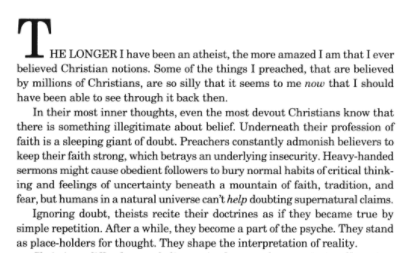Randal Rauser's Blog, page 121
July 16, 2017
A Review of The Moral Arc Part 1: Abortion
 Michael Shermer. The Moral Arc: How Science and Reason Lead Humanity Toward Truth, Justice, and Freedom. New York: Henry Holt, 2015. 543 pp.
Michael Shermer. The Moral Arc: How Science and Reason Lead Humanity Toward Truth, Justice, and Freedom. New York: Henry Holt, 2015. 543 pp.
As I read it, Michael Shermer’s 2015 book The Moral Arc is a sweeping 500 page apologetic for two theses: the optimism thesis (the world is getting better); and the secular thesis (that improvement is due to secular rather than religious beliefs, values, and methods). To clarify, Shermer does not state his argument precisely in those terms. Rather, those two theses are my attempt to summarize the gist of the book’s argument.
As this review (with its multiple installments) unfolds, I will focus on criticizing Shermer’s argument. But I want to say at the outset that I enjoyed the book very much and it’s a great read (a fact I can say about every Shermer book I’ve read). So while I will present a sharp critique of much of the book, I do think it is worth your while to pick it up and judge for yourself. (Put it this way: any book that warrants a review of multiple installments is worth your time.)
Now on to business.
Shermer and Pinker
Shermer acknowledges the influence of Steven Pinker’s monumental 2011 book The Better Angels of Our Nature: Why Violence has Declined on his own project. Like Pinker, Shermer believes the world is improving.
Having said that, there are important differences between the two books.
Pinker focuses on the decrease in violence. His tightly focused argument depends only on the definition of violence and the hard data that violence is indeed decreasing over time relative to the stated definition. Having read significant portions of Pinker’s tome, I am persuaded that he establishes his case. (Judging by the online reviews, most readers seem to be persuaded as well: violence is indeed decreasing.)
By contrast, Shermer paints on a much broader canvas. He seeks to establish how the secular beliefs, values, and methods embodied in science and reason are leading humanity toward truth, justice, and freedom. That’s a far broader and more ambitious thesis — indeed, it borders on messianic — and for that reason it is also far more contentious.
The problem is that a thesis this sweeping and ideological in nature (concepts like “truth,” “justice,” and “freedom” are most definitely ideological as they inform various incompatible conceptions of the good society) is vulnerable to the subjective evaluative judgments of the author. The danger, in short, is that the author outruns the evidence in order to advance his/her own pet agenda.
To illustrate that problem, a problem that runs throughout the book, I’m going to focus in this first installment on Shermer’s treatment of abortion. With this topic in mind, it is my contention that Shermer presses his thesis into service to justify his prochoice views. And in doing so he effectively outruns the evidence by caricaturing his opponent and failing to justify his example with respect to the broader argument in the book.
(Terminological note: in this review when I say “prochoice” I refer to those who support elective abortion; by contrast, those who are “prolife” do not support elective abortion. I make no judgment about therapeutic abortion.)
And let me stress that while I believe abortion is an important ethical issue, I don’t think it is more important than other crucial ethical issues like human induced climate change or the industrial war complex. So one ought not marginalize the following critique as yet another instance of the conservative obsession with protecting the fetus at the expense of every other moral concern.
The “Science” of Being Prochoice
And so we turn to chapter six where Shermer discusses “A Moral Science of Women’s Rights.” One might take issue immediately with Shermer’s attempt to justify a progressive feminist ethic by way of “science”. But that would be to get ahead of ourselves. So let it be noted that I will reserve my comments about Shermer’s attempt to reason from natural facts to moral facts for a later installment in this review.
Instead, for now I will focus on Shermer’s defense of women’s reproductive rights (p. 224 ff.). For Shermer, a significant aspect of reproductive rights includes unrestricted access to the elective abortion of human fetuses. Thus, the increase of access to medical procedures that kill the developing fetus for non-therapeutic reasons is, for Shermer, one more example of the moral arc.
At this point it is important to note that Shermer regularly illustrates the advance of the moral arc of history by appealing to the notion of expanding circles of moral concern. Initially we were only concerned with ourselves and our kith and kin. But gradually the circle has expanded to encompass other human beings regardless of national identity, gender, or physical or mental capacity. And from there it has continued to encompass other non-human organisms including those with various degrees of sentience. All of this evinces the advance of the moral arc.
Elective Abortion
For Shermer, the right to elective abortion of human fetuses fits naturally into this triumphalistic progression. How so? Simple: it provides an example of the expansion of concern for women. As he puts it, “full female rights” just “are simply human rights” (232).
So Shermer says, anyway. But somebody else might reasonably disagree with him. And that’s the problem. This person might say that far from representing an expansion of moral concern, the increase in legal access to the elective abortion of human fetuses reflects a reversal on this advance into spheres of moral concern.
How so? It works like this: just as children throughout history have often not been granted their legitimate place in our spheres of concern, so fetuses likewise have not been granted their legitimate place in our sphere of concern. If one begins with that assumption then the rise of legal access to the elective termination of fetuses in utero constitutes not the advance of “full female rights” but rather the diminution of “full fetal rights,” fetal rights that are themselves “simply human rights.”
In other words, the only reason women’s rights trump fetal rights in Shermer’s triumphal thesis is because he says so: that’s Shermer’s view. So that’s why it gets privileged in his analysis.
And that’s not very assuring.
To make matters worse, Shermer labels prolife views as “anti-choice”, an indulgent rhetorical insult that he justifies with the smarmy self-serving declaration that “we are all ‘pro-life'” (233). By that logic one might equally call pro-choice advocates “anti-life” since of course “we are all ‘pro-choice'” by some metric. (It just depends which life, or choice, is in question and which metric is chosen. See how easy it is to be hoist with one’s own rhetorical petard?)
To add insult to injury, Shermer then claims that “pro-life proponents believe that human life begins at conception” and thus “For them, it is a binary system” (233).
Seriously? All of them? They all believe this?
Actually, no, they don’t all believe this.
Here I am left with two alternatives: either Shermer has never read sophisticated ethicists critiquing access to elective abortion (in which case he should pause for a couple months to read so he can get up to speed) or he is deliberately strawmanning a position he rejects in order to serve his ideological agenda set within his grand moral arc.
I suspect the former issue is the problem. In other words, I suspect that Shermer is simply not well read in the literature. I believe this to be the case because he conflates “human being” and “human person” (234) even though these are two fundamentally distinct categories. In bioethics, the ability to distinguish between a human being and a human person is preliminary to serious discourse.
But let’s be clear: ignorance is hardly a vindication. At best it means that Shermer has pressed his grand thesis into ideological service as an end run around actually engaging with the views of prolife advocates.
And if he’s engaged in this conduct in the case of prolife advocacy, where else has he done so?
Conclusions
So what is the lesson to draw from this?
I began here because this example illustrates the great contrast between Pinker and Shermer. While Pinker began with a narrow and clearly defined focus — the decline in violence — Shermer’s project is concerned with an expansive and ideologically loaded thesis. The case of abortion illustrates how quickly that expansive thesis can be manipulated to serve one’s own pet ideological agenda. In this case, Shermer tendentiously assumes the expansion of the moral sphere concerns women’s rights to elective abortion rather than the fetus’ right to life.
From there, Shermer proceeds to malign prolife advocates with the marginalizing term “anti-choice” complemented with a binary caricature of prolife ethical reasoning and a conflation of the concepts of human being and human person.
This should be enough to warn the reader that Shermer’s sweeping analysis of history could be constructed with the end of baptizing his own chosen ideological agenda.
The post A Review of The Moral Arc Part 1: Abortion appeared first on Randal Rauser.
July 14, 2017
Atheists who celebrate intellectual regression
Intellectual development involves, among other things, the increased ability to analyze the views of others with critical nuance and charity. At its most sophisticated level, that trend includes the skill of rigorous devil’s advocacy, i.e. the ability to defend the views of others with as much sophistication and putative conviction as genuine advocates for the position.
By contrast, intellectual regression involves, among other things, a retreat from that ability to analyze the views of others with critical nuance and charity, most perspicuously in that rigorous devil’s advocacy.
While atheists love to indulge in the rhetoric of “reason,” it is ironic that they so frequently celebrate the deeply irrational process of intellectual regression. Consider, for example, this tweet (which I first encountered as a Counter Apologist retweet):
"The longer I have been an atheist, the more amazed I am that I ever believed Christian notions." – @DanBarkerFFRF pic.twitter.com/Ko0ub12CAc
— Atheist Republic (@AtheistRepublic) July 14, 2017
In this quote Dan Barker states that the longer he is an atheist, the more amazed he is that he was ever a Christian. Amazement of this sort entails the loss of ability to analyze Christian beliefs with critical nuance and charity, most perspicuously in rigorous devil’s advocacy. After all, if Barker retained those skills, he would not be amazed because he would understand perfectly well why and how perfectly reasonable and intellectually sophisticated people continue to be Christians. Consequently, Barker’s “amazement” cashes out to a loss of intellectual skill, and thus a de facto celebration of intellectual regression.
As I said, this is not only unfortunate, it is ironic for atheists who regularly indulge in the rhetoric of reason. It’s like a person who was a onetime cosmopolitan world traveler celebrating their regression into ignorant, provincial attitudes.
But is it possible that we’re not being fair to Barker’s quote in context? That’s a perfectly reasonable question to ask. Let’s take a look at the wider context in which the quote appears from Barker’s book Losing Faith in Faith (p. 106):

If anything, the wider context is even worse. Not only is Barker “amazed”, but he dismisses Christian beliefs as “silly”. Indeed, he even goes on to impugn Christian intellectual honesty: “In their most inner thoughts, even the most devout Christians know that there is something illegitimate about belief.”
Oh we do, do we?
This charge is the atheist’s equivalent of Christian claims that deep down atheists really do believe there is a god. Each is an uncharitable case of arm chair psychology in which an outgroup is diminished and marginalized with the claim that each member of the group is, in some sense, faking it. (For my critique of Christians engaging in this behavior, see my book Is the Atheist My Neighbor?)
The good news is that we can say with confidence that Atheist Republic is not misrepresenting Barker’s views in this tweet. The bad news is that both the tweeted quote and the original passage in which it occurs are bald examples of the retreat into the ignorant and provincial.
The post Atheists who celebrate intellectual regression appeared first on Randal Rauser.
July 13, 2017
Christian Bookstores, Eugene Peterson, and Same Sex Marriage
Just in case you thought the evangelical furor over same sex marriage was cooling off, the last twenty-four hours shows otherwise. In that time the internet exploded (or at least the evangelical blogosphere and twitterverse did) over Eugene Peterson’s apparent endorsement of same sex marriage.
Peterson has since walked back his comments. But what I’d like to talk about here is the position taken by LifeWay Christian Bookstores in the midst of the controversy. In short, they stated that they would withdraw all Peterson’s books from sale if he continued to endorse same sex marriage.
I’d like to make several points by way of response.
First, in principle I respect any Christian bookstore that sees itself not merely as a vendor of merchandise that is marketed toward a Christian audience but as a curator of good (i.e. orthodox) content.
Second, while I respect the curator role, it also places one at the top of a very slippery slope. If I ran a Christian bookstore, I’d have a hard time living with myself while selling John Hagee’s irresponsible end-times schlock, for example. No worry: if you really want to pick some up, LifeWay has a wide selection. It also has the absolutely terrible Left Behind Series, including the kids’ version.
(Having said that, I’m suitably impressed that I couldn’t find Joel Osteen, Creflo Dollar or Kenneth Copeland books on LifeWay’s website.)
Third, while I respect the aspiration for a curator role, curator is not the same thing as censor. “Curator” is, in fact, my charitable interpretation of LifeWay’s goal, but in point of fact they are acting as censors of what they perceive to be good or respectable material.
This leads me to a fourth point: a real curator equips and enables readers to read critically and find both points of agreement and disagreement with a book. Eight years ago when I was doing the interview rounds for my book Finding God in the Shack I did one interview in which the radio host insisted we shouldn’t read The Shack because, as he opined, the book contained “heresy”. To support his point he invoked the metaphor of cake batter with a spoonful of poop. Even though it’s only a spoonful, you wouldn’t eat any of the cake because it’s all “contaminated”. Likewise, if a book has doctrinal or moral error, you should reject it wholesale, because the whole thing is contaminated.
When I shared that gentleman’s analysis with another interviewer (a southerner who liked The Shack), he replied incredulously: “Well as I see it professor, reading a book is like eating a piece of fried chicken: you eat the meat and leave the bone!”
Yes, exactly. The proper response to a book with “error” is not generally to toss the whole thing, but to learn to read it critically, to eat the meat and leave the bone. And if a vendor’s “curation” is little more than censorship, the reader never learns to acquire that skill.
No surprise, LifeWay doesn’t sell a single book by John Dominic Crossan or Marcus Borg as these are the very epitome of “liberal” scholars. Over the years I’ve read a few books by each (and I’m reading Crossan’s How to Read the Bible and Still be a Christian right now). I’ve found a number of bones in their books: but I’ve also found a lot of meat. And even chewing on the bones helps sharpen one’s teeth.
Finally, my last point, and the one that applies to Eugene Peterson. To my knowledge, he has not endorsed same sex marriage in print in any of his books (hence the widespread surprise at yesterday’s revelation). Consequently, LifeWay’s willingness to censor all Peterson’s books for his answer to an interviewer’s question on a contentious contemporary ethical issue that is not addressed in any of his books strikes me as arbitrarily nasty and punitive at best … and a shameless ploy to court free media attention in order to drum up more customers at worst.
All this leaves me deeply conflicted on the continued existence of that bastion of commercial Christian subculture we call the “Christian bookstore”.
The post Christian Bookstores, Eugene Peterson, and Same Sex Marriage appeared first on Randal Rauser.
July 12, 2017
Ode to the Corner Store
We live in an age where corporate big box retailers appear over night, flourish for a few years, and then close up shop, only to be replaced by the latest flash in the retail pan.
Set against that backdrop, I’d like to express my admiration for the quiet endurance of the local convenience store.
I recently visited my hometown — Kelowna, British Columbia — for the obligatory summer visit. And I was heartened to see that Knox Mountain Market is still going strong … forty years after I was a regular purchasing penny candy.

Knox Mountain Market, July 2017: still crazy after all these years.
Why does this matter?
Let’s put things in perspective: when my family moved to Kelowna in 1977, the population of the city proper was 52,000; today it exceeds 128,000. In other words, you’d hardly recognize the city. In late 1977 my dad opened his warehouse down the street from Knox Mountain Market and I grew up riding my bike a few blocks to buy penny candy at this fine establishment.
At that time, ABBA ruled the music charts, Pierre Trudeau ruled Canadian politics, and the Sony Walkman was just about to revolutionize the world of music. Today ABBA is relegated to the golden oldies, Trudeau’s son is prime minister, and Spotify and smartphones dominate the musical landscape.
In that same time, countless retailers have come to Kelowna only to pack up in defeat, K-Mart and Target included.
And through it all, Knox Mountain Market still quietly peddles candy, beef jerky, and magazines to the local neighborhood. Surely that counts for something, doesn’t it?
The post Ode to the Corner Store appeared first on Randal Rauser.
The Title of My New Book
 If you’ve ever driven the interstate through southern Wyoming, you’ll probably notice the billboards appearing at regular intervals touting the virtues of “Little America“, a motel/gas station/restaurant located midway on the long drive from Cheyenne to Salt Lake City.
If you’ve ever driven the interstate through southern Wyoming, you’ll probably notice the billboards appearing at regular intervals touting the virtues of “Little America“, a motel/gas station/restaurant located midway on the long drive from Cheyenne to Salt Lake City.
The purpose of each billboard is clear: gradually build up anticipation for the destination until the moment when motorists approaching exit 68 inexorably find themselves drawn off the interstate and on to discover the wonders of Little America.
Now all we need to do is substitute “Little America” with “my new book” and “billboards” with “blog posts” and here we are.
In this article I provide the next billboard: the title.
Over the last nine months the title has changed several times, from the unwieldy Do you know where you’d go if you died tonight (the so-called “working title”) to the uninspired Finding Salvation with a few other stops in-between.
Then in early June my friend Bob (who had read the manuscript) suggested What’s So Confusing About Grace? And in a flash I knew I had at last found the title.
The allusion is obviously to Philip Yancey’s 1998 book What’s So Amazing About Grace?, a modern classic of big tent, grace-filled Christianity, i.e. the kind of Christianity that is in short supply these days (and most days, alas).
I was a big fan of Yancey’s book when it came out (still am too). Grace is amazing. But it is also confusing, way more confusing than you’d ever expect. And this book tells that story from the perspective of one individual’s forty year journey (that individual being me).
The post The Title of My New Book appeared first on Randal Rauser.
July 8, 2017
Unveiling My New Press Imprint
I’m hoping to launch my new book next week. We’ll see how that goes (I originally thought I’d be launching it a month ago). This will be my eleventh book. But it is my first self-published book. And while the process of self-publishing has been more work than I had anticipated (or hoped), it is rewarding in many ways, most obviously in the nearly complete creative control over the process.
For starters, I was free to write the book I sensed I needed to write. And the result is a work that is both deeply personal and universal in scope and implications.
Next, I controlled the typesetting. The typesetting of my past books has generally been good (with the exception of Is the Atheist My Neighbor?), but in this case I was able to add more details to the typesetting in terms of sidebars that accompany the text.
I was also able to outsource the cover art to a friend of mine, Darryl Frayne, and he managed to come up with a cover that works thematically with the book (and particularly the conclusion).
Finally, I get to publish under my own imprint. “Tentative Apologist Press” was too unwieldy, but I wanted a logo that linked up with my Tentative Apologist logo:

And so, behold the new logo for 2 Cup Press (get it? French press! Clever huh?!):

The post Unveiling My New Press Imprint appeared first on Randal Rauser.
July 6, 2017
Trump in the light of history: A review of On Tyranny
 Timothy Snyder. On Tyranny: Twenty Lessons from the Twentieth Century (New York: Tim Duggan Books, 2017).
Timothy Snyder. On Tyranny: Twenty Lessons from the Twentieth Century (New York: Tim Duggan Books, 2017).
C.S. Lewis once observed, “I think no class of men are less enslaved to the past than historians. It is the unhistorical who are usually without knowing it enslaved to a very recent past.”
That quote perfectly captures the motivation behind Yale historian Timothy Snyder’s new book. A breezy yet learned manifesto, On Tyranny is an invitation to understand the presidency of Donald Trump in light of the rise of anti-democratic movements in the twentieth century.
Each of the twenty short chapters highlights one particular lesson which can inform and guide activists of this generation to oppose authoritarianism and secure democratic institutions for the future.
To be honest, I was initially skeptical of Snyder’s book as it brought to mind Naomi Wolf’s 2007 monograph The End of America: Letter of Warning to a Young Patriot. While there was much to commend Wolf’s spirited critique of the Bush administration and its assault on democratic institutions, it nonetheless seems to me that she significantly overplayed her hand in attempting to draw parallels between the Bush administration and National Socialism. With that in mind, I worried that Snyder’s book would also be hampered with an overly partisan agenda
I’m glad to say that is not the case. In my opinion, On Tyranny quickly vindicated itself. Page after page it draws on insights gleaned from communist and fascist regimes to illumine present events.
For example, chapter 4 advises us to “Take responsibility for the face of the world.” (32) Here Snyder warns against the authoritarian tendency to divide, marginalize, and scapegoat. Later in the book he provides an overview of how Vladimir Putin has targeted Muslims as a means to undermine democratic institutions and secure greater power for himself. Needless to say, Trump is doing precisely the same thing. This is the time when we need to stand with the marginalized other against this authoritarian strategy.
Trump’s unrelenting assault on the free press and all facts which fail to meet his authoritarian agenda presents us with another sobering example. We live in an age of “alternative facts” and the rapidity at which it is taking hold is, frankly, terrifying.
Case in point: just today MSNBC reported that currently two thirds of Republicans believe Russia did not interfere in the 2016 election. This despite the fact that seventeen government security agencies insist that Russia did precisely that. This cavalier dismissal of evidence and consensus expert opinion is even more stunning when one considers that the Republican Party has distinguished itself as the anti-Communist cum Russian party since WW2. It is no longer: in less than a year Trump has completely changed the cultural ethos of the grassroots of the party into denying evidence, facts, and history. This is itself a fact which should chill us to the bone.
Chapter 17 warns, “Listen for dangerous words.” (99) Snyder focuses in particular on the propagandistic use of terms like “terrorism” and “extremism.” He writes, “When politicians today invoke terrorism they are speaking, of course, of an actual danger. But when they try to train us to surrender freedom in the name of safety, we should be on our guard.” (100)
Snyder continues, “Extremism certainly sounds bad, and governments often try to make it sound worse by using the word terrorism in the same sentence. Bu the word has little meaning. There is no doctrine called extremism. When tyrants speak of extremists, they just mean people who are not in the mainstream–as the tyrants themselves are defining that mainstream at that particular moment.” (101)
As an example, consider this tweet just today in which Trump invokes both terrorism and extremism in the same sentence:
America is proud to stand shoulder-to-shoulder with Poland in the fight to eradicate the evils of terrorism and extremism. #POTUSinPoland pic.twitter.com/MHxRmVvtsh
— Donald J. Trump (@realDonaldTrump) July 6, 2017
Other chapters take on topics like the rise of paramilitaries (chapter 6: see in particular Snyder’s chilling description of the nationalistic mob violence at a Trump rally (45)) and the need to engage in visible support of public institutions (chapter 15).
The book is certainly not perfect. For one thing, at points it feels like it was rushed to print. As a result, there are places where the text could have been wordsmithed for greater clarity and effectiveness. For example, chapter 13 is headed with the following advice: “Practice corporeal politics.” (83) Huh? What’s that supposed to mean? Later in this short chapter we read this gem: “nothing is real that does not end on the streets.” (84) Now that’s a great line, it’s clear and evocative, and it would make a far better title than “Practice corporeal politics.”
My other complaint is that while Snyder’s book promises twenty lessons from the twentieth century, it is really twenty lessons from European history in the twentieth century. This is unfortunate because examples from countries like Cambodia and Indonesia would have strengthened Snyder’s case substantially.
While On Tyranny is not perfect, it is timely and hugely important. This is not a matter of political partisanship. Rather, it concerns the guarding of democracy and its institutions over-against authoritarianism and nationalism. “Eternal vigilance,” it has been said, “is the price of liberty.” (27) On Tyranny equips you to stand on the watchtower.
You can order On Tyranny here.
The post Trump in the light of history: A review of On Tyranny appeared first on Randal Rauser.
July 4, 2017
Can we all get along?
I am weary of rancor and enmity on the internet. As a result, many times I’ve found myself echoing the poignant words of Rodney King in the wake of the unfolding L.A. riots: “People, I just want to say, you know, can we all get along?”
So I am always heartened when my blog can occasion the exchange of rigorous and eminently civil dialogue on big topics. As a case in point I cite the article I posted yesterday: “I intended to write this article. So much the worse for reductionism.” More specifically I cite the growing discussion thread that accompanies the article. Here we see a vigorous and congenial exchange of perspectives. We may not end up changing each others’ minds about the nature of those minds :), but that doesn’t mean we can’t like and respect each other.
The post Can we all get along? appeared first on Randal Rauser.
July 3, 2017
I intended to write this article. So much the worse for reductionism.
I just had a rather long exchange on Twitter with Truth (T) and The Thinker (TT) on the topic of mind, dualism, and reductionism. In the exchange I focused on making a simple but important point: when one types a tweet one brings about an event in the material world (i.e. the tweet’s existence via the depression of keys on a keyboard). Moreover, one brings about this event because of the mental intention to communicate the semantic content (propositions; speech acts) contained in the tweet. Since actuality entails possibility, it follows that it is possible for mental events to bring about physical effects because mental events (e.g. the intention to tweet) brings about physical effects (the creation of the tweet).
T and TT were unimpressed. They insisted that mentally events are causally effete (i.e. they cannot cause any physical effects). The only problem is that they made their case via tweets which convey semantic content based on their mental intention to communicate that content to folks like me. And so I charged them with a self-defeating position, i.e. arguing that mental events cannot cause physical effects by way of mental events that cause physical effects.
In response, T and TT appealed to physics and insisted that the ability of mental events to bring about physical effects violated physics in some way (e.g. by violating the law of conservation of energy).
This assumes (without argument) that mental events cause physical events by way of energy transfer. But one need not assume that at all. It could be that mental causation is a sui generis causal power.
At this point we need to take a step back and consider the following: of what am I more certain?
(1) That mental events can bring about physical effects (like semantically meaningful tweets)
(2) That the nature of the universe is such as to preclude the possibility of the mental affecting the physical
In my view, it isn’t even a contest. Obviously I’m more certain of (1). I’m more certain of it most clearly because I’m depressing keys on my keyboard as I speak and I’m doing so based on the intention of communicating to others. Remember, actuality entails possibility.
Moreover, as I already pointed out, mental causation could be sui generis. Thus, even if physics does preclude particular kinds of causation, it hardly follows that this includes mental causation.
Finally, I don’t agree with T and TT’s evaluation of physics. The observer effect is a well-established phenomenon in which minds can effect physical events merely by observing them. Consequently, I am left puzzled by the insistence of some that our current understanding of physics precludes the ability of the mind to affect the world.
To sum up my case: I intended to write this article; so much the worse for reductionism.
The post I intended to write this article. So much the worse for reductionism. appeared first on Randal Rauser.
June 30, 2017
Today I Think of Bob Jyono

Bob Jyono with his daughter.
Yesterday I learned about the latest emerging pedophile scandal in the Catholic Church, one that centers on Cardinal George Pell, by some reports the third most powerful man in the Church. (I’m not up on Catholic polity so I won’t render an opinion either way on that.)
This will be settled in the courts, but for now I believe the victims. Two decades ago two grown men filed statements with police that they were abused by Pell when they were children. They didn’t make this story up to be rich and famous. And I see now evidence they are psychotic. Ergo…
As that case plays out in the Australian courts, I find myself thinking of Bob Jyono. I first met Mr. Jyono in the harrowing 2006 documentary Deliver Us From Evil which chronicles how the Catholic Church enabled a pedophile priest — Oliver O’Grady — as he raped dozens of children for decades. Mr. Jyono was one of the parents interviewed in the film and he recounted as a father and one-time faithful Catholic how this pervert priest had raped his own daughter in his own house for years.
I find Mr. Jyono’s case particularly haunting, so much so that I’ve referred to it in three of my books. As Deliver Us From Evil ends, we find that we have not been delivered from evil. Jyono and his family and countless other families just like theirs, have been destroyed. Meanwhile, O’Grady — one of the clearest examples of a clinical psychopath I’ve encountered — suggests in an interview that he’d like to meet with his victims to mend fences. That obscene proposal made me want to drop a marble pedestal on his serene grandpa face.
I recall with grim satisfaction that day in 1984 when Gary Plauche plugged some lead into the brain of his son’s rapist. (See this excerpt from an old story of the case on Court TV.) If there is any point at which my professed pacifism takes a beating (how ironic is that?) it is here, with my overwhelming impulse to inflict egregious bodily harm on anyone who would harm my own child.
As for O’Grady, he isn’t wearing an orange jumpsuit when he coyly proposes a meeting to mend fences. As he is interviewed he is living free back in his native Ireland. The pedophile roams free with a little grin while his victims are left in their respective cages of pain, torment and rage.
I said that Jyono was a “one-time” Catholic. He now describes himself as an atheist: Jyono is unable to reconcile himself to the notion that God stood by while one of the designated divine representatives raped his precious daughter in his own house.
Cases like that of Bob Jyono are one of the reasons I get angry when I hear Christians ascribe all disbelief in God to rebellion. You’re not in a place to judge Mr. Jyono, and you won’t be until you’ve walked a mile in his shoes.
And God forbid you ever have to.
The post Today I Think of Bob Jyono appeared first on Randal Rauser.




